
ICAS Bulletin (online ISSN 2836-3418, print ISSN 2836-340X) is published every other week throughout the year at 1919 M St NW, Suite 310, Washington, DC 20036.
The online version of ICAS Bulletin can be found at chinaus-icas.org/bulletins/.
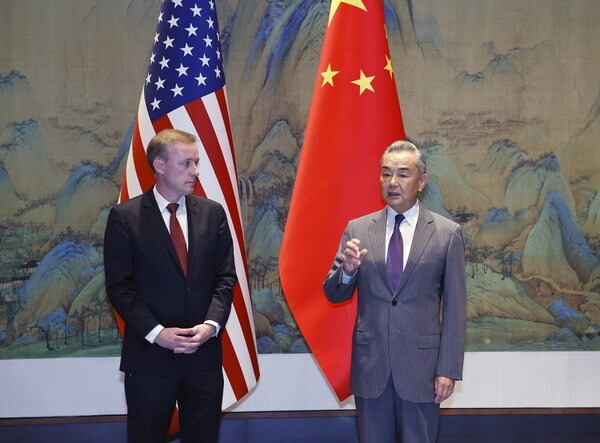
– U.S. National Security Adviser Jake Sullivan met with Chinese President Xi Jinping, Foreign Minister Wang Yi, and military leader Gen. Zhang Youxia during his visit to Beijing from August 27 – 29. This marked a key step in stabilizing the U.S.-China relations.
– Following Sullivan’s visit, Treasury Secretary Janet Yllen, who will potentially leave the government after the end of Biden’s term, announced that she will likely meet again soon with her Chinese counterpart.
– Sullivan and Wang Yi hammered out the upcoming call between President Biden and President Xi, which is likely the final one-on-one contact between the two leaders before the November election.
– Following the Sullivan trip, the U.S. and China held high-level commander talks for the first time on September 10. The talk, held between Adm. Sam Paparo, the head of the U.S. Indo-Pacific command and Gen. Wu Yanan, head of China’s southern theater command, aimed to stabilize military ties and avoid misunderstandings, especially in the South China Sea.
– Both sides acknowledged limited progress on key issues but committed to maintaining dialogue. The visit was seen as a precursor to further high-level engagements, with a focus on areas of mutual interest and ongoing challenges, especially with upcoming U.S. elections and potential future phone calls between Biden and Xi.
Associated News References:
“US security official meets China’s Xi as American election looms large over relations” CNN, August 29
“Yellen ‘probably done’ when Biden ends term, may meet Chinese counterpart soon” Reuters, September 7
“Biden aims for farewell call with China’s Xi Jinping” POLITICO, August 28
“U.S. and Chinese Officials Discuss Future Talks Between Biden and Xi” The New York Times, August 28
“Top US, Chinese military brass hold first call to stabilize ties” Reuters, September 10
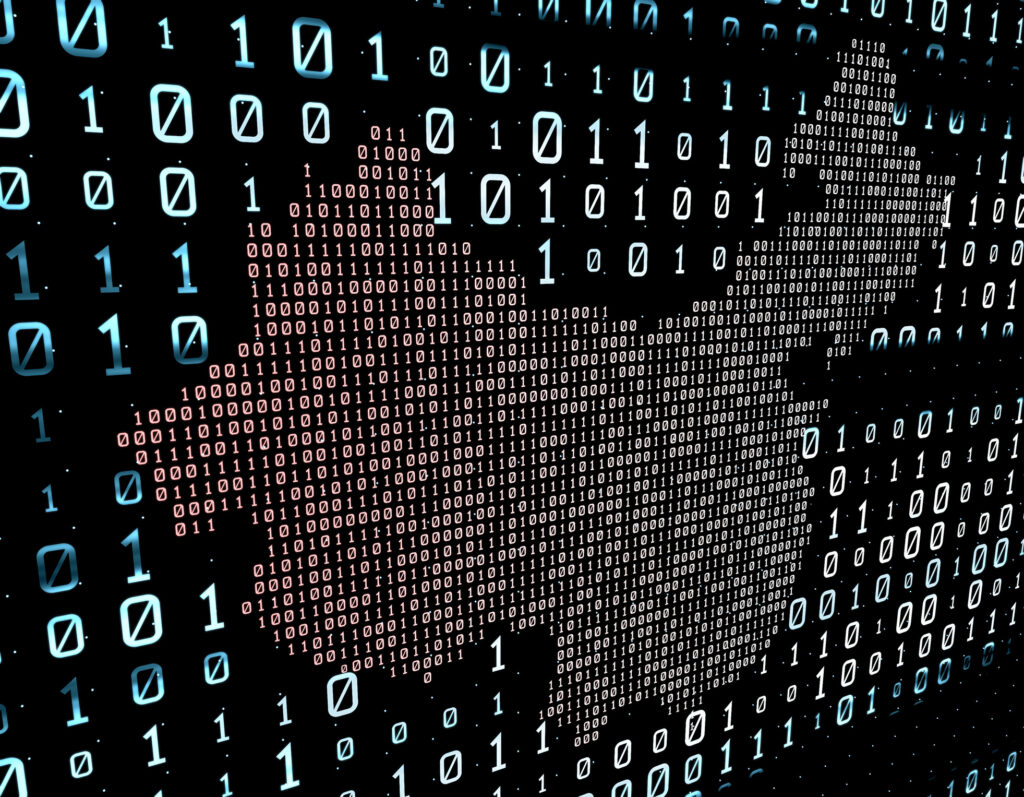
– The U.S. is investigating the Spamouflage group, allegedly linked to Chinese interests, for its use of fake accounts on X and TikTok to spread divisive content and target political figures ahead of the 2024 U.S. election, although its overall impact has been minimal so far.
– Despite denials of interference from the Chinese Embassy, the Spamouflage operation raises significant concerns about foreign influence, particularly in light of recent hacking incidents involving other countries and the ongoing debate about the integrity of U.S. elections.
– Former New York state official Linda Sun is charged with acting as a covert agent for the Chinese government. Prosecutors claim she obstructed Taiwanese officials, aligned New York’s messaging with Chinese priorities, and tried to facilitate a trip to China for a New York politician.
– Alongside Sun, her husband, Hu, faces charges of money laundering conspiracy, bank fraud conspiracy, and misuse of identification. Both are scheduled to appear in court on September 25, 2024.
Associated News References:
“Ex-aide to 2 New York governors accused of working as agent of Chinese government” PBS, September 3
“Former aide to New York governors charged with acting as an agent of the Chinese government” CNN, September 4
“Who is alleged Chinese agent Linda Sun?” Voice of America, September 5
“Beijing-Backed Trolls Target U.S. Voters as Election Nears” The Wall Street Journal, September 3
“China-linked ‘Spamouflage’ network mimics Americans online to sway US political debate” ABC News, September 3
“Chinese social media operation pushing divisiveness ahead of US election: Research” The Hill, September 3
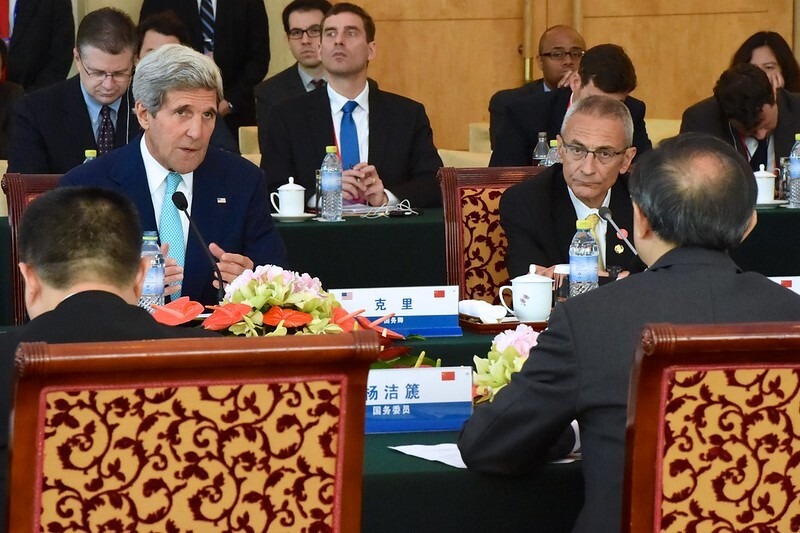
– On September 6, US climate envoy John Podesta and Chinese counterpart Liu Zhenmin met in Beijing and pledged to work together on climate finance and non-CO2 emissions, with an eye on COP 29 in Baku, Azerbaijan, in November. Despite positive discussions, no major breakthroughs were achieved.
– With the US presidential election looming, there are concerns that potential policy shifts could affect climate collaboration. Both countries are cautious about making major commitments before the election outcome.
– The talks highlighted a shared focus on reducing methane and other non-CO2 gasses, though China did not commit to the global methane reduction pledge from COP 28. Both sides aim to strengthen dialogue and collaborative efforts.
– Beijing expressed concerns over US policy stability and potential impacts on climate talks, and state media criticized the West for undermining global green cooperation and imposing punitive measures against China’s new energy sector.
– President Biden’s administration supports climate cooperation with China, a stance likely to continue under Democratic nominee Kamala Harris, while Republican nominee Donald Trump has threatened to disrupt climate agreements and escalate trade tensions.
Associated News References:
“China, US vow to work together on climate issues, but American election may alter path” South China Morning Post, September 9
“Amid flurry of China-US talks, climate meetings to seek areas of ‘practical cooperation’” South China Morning Post, September 3
“U.S.-China climate ‘differences’ linger as envoys wrap up talks” Nikkei Asia, September 6
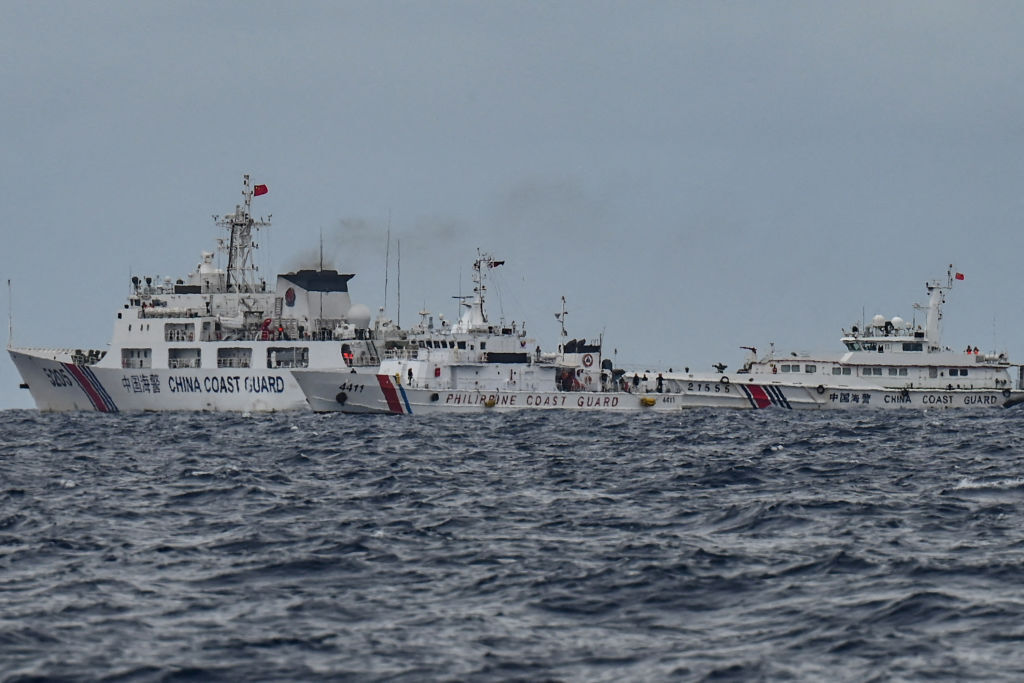
– China held high-level talks with the Philippines on the South China Sea issues, in particular over the Sabina Shoal on September 11.
– China and the Philippines have traded accusations after a collision between their coast guard vessels near Sabina Shoal. This incident follows recent talks between U.S. National Security Adviser Jake Sullivan and Chinese leaders, where the U.S. reaffirmed its defense commitment to the Philippines and condemned China’s actions as a threat to navigation freedoms.
– During the September 10 U.S.-China theater-level commander talks, the U.S. Indo-Pacific Theater commander Samuel Paparo urged his Chinese counterpart Wu Yanan to “reconsider its use of dangerous, coercive and potentially escalatory tactics in the South China Sea and beyond.”
– On September 4, Raymond F. Greene, the top U.S. envoy to Taiwan, reaffirmed America’s “rock-solid, principled, and bipartisan” support for Taiwan amidst ongoing uncertainties regarding China’s intentions. Greene emphasized continued U.S. commitments to Taiwan’s defense and the security of shipping in the Taiwan Strait.
Associated News References:
China, Philippines Hold ‘Candid’ Talks On Disputed Shoal Barron’s, September 11
“China and the Philippines Trade Blame for the Latest Sea
Collision” The New York Times, September 1
“Analysts: China tests US commitment to Indo-Pacific with maritime operations” Voice of America, September 3
“US envoy to Taiwan declares ties ‘rock solid’ amid military threats from China” ABC News, September 4
“New U.S. envoy vows to help enhance Taiwan’s resilience, security” Focus Taiwan, September 4
“US military theatre commander urges China rethink ‘tactics in South China Sea and beyond’” South China Morning Post, September 10
“US Pacific Commander Chides China in First Talks With Military Counterpart” Newsweek, September 10
“US and Chinese commanders hold rare talks to dial down risk of ‘miscalculation’” CNN, September 10

– The Biden administration is implementing new export controls targeting critical technologies, including quantum computing, semiconductor goods, and high-bandwidth chips, to address China’s advances in the global chip industry.
– The global industry has expressed some reluctance to these controls as the U.S. intensifies efforts to restrict China’s growth in these technology sectors.
– On September 9, The House of Representatives passed the Biosecure Act, targeting companies like WuXi AppTec and BGI by restricting federal contracts based on national security concerns. While supporters argue it safeguards U.S. health data and supply chains, critics claim it lacks transparency and discriminates against Chinese firms. The bill has led to significant stock price declines for the affected companies, and the Senate has yet to address a similar proposal.
– During the “China Week,” the House of Representatives will vote on about 36 bills, including the Taiwan Conflict Deterrence Act, the HKETO Certification Act, and the Biosecure Act, which seeks to block federal contracts with five Chinese biotech firms over national security issues. The Chinese Embassy criticized these bills, claiming they would severely disrupt U.S.-China relations.
Associated News References:
“U.S. rolls out new chip-related export controls as China makes industry advances” CNBC, September 6
“US roll outs new export controls aimed at restricting China’s chip industry” AlJazeera, September 6
“US to Hit China With Quantum, Chip-Related Export Curb” Bloomberg, September 6
“Tough-on-China bills set for approval by U.S. House this week” Nikkei Asia, September 9
“US bill to restrict business with China’s WuXi AppTec, BGI passes House” Reuters, September 10
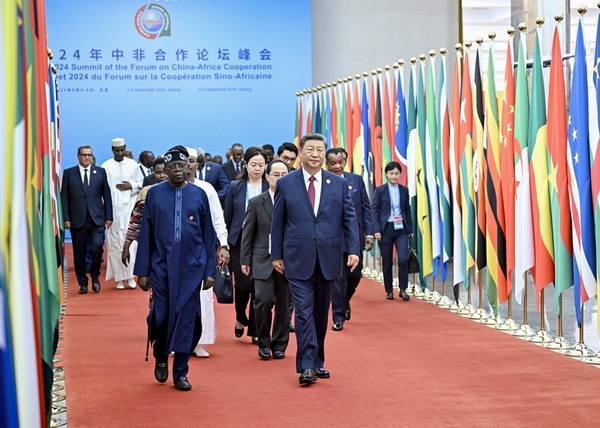
“Rare Chinese Y-9LG ELINT Aircraft Spotted in Thailand“ Naval News, September 1
“China’s electronic war plane made to dominate South China Sea” Asia Times, September 2
“Russia begins massive naval drills together with China” AP News, September 10
“China Stops Foreign Adoptions, Ending a Complicated Chapter” The New York Times, September 6
“Xi offers African leaders more aid as China challenges US-led global order” AP News, September 5
“China’s Forex Reserves Rose in August as U.S. Dollar Weakened” The Wall Street Journal, September 7
September 4 hosted by Foreign Policy
September 4 hosted by Atlantic Council
September 09 hosted by Wilson Center
September 10 hosted by Hudson Institute
September 12-13 hosted by United States of America-China Chamber of Commerce
September 17 hosted by Hudson Institute
September 19 hosted by Brookings
September 19 hosted by The US – China Business Council
September 19 hosted by The US – China Business Council
Why can’t we just let American & Chinese scientists get along?
By Denis Simon and Marcus Stanley
August 28, 2024
The Science and Technology Agreement (STA) between the United States and China was the first official agreement signed after the normalization of U.S.-China relations in the 1970s. But now after 45 years, it is under threat. Since it was signed in 1979, the STA has been a cornerstone of bilateral cooperation and the basis for scientific research cooperation between U.S. and Chinese government agencies and universities in areas of basic science like agriculture, clean energy, public health, and the environment. But today the STA — which has twice received temporary six month extensions over the last year — is due to lapse yet again. It may again receive another temporary extension. But there is no mistaking the way the rise in geopolitical tensions between the U.S. and China has cast a shadow over possibilities for research cooperation between the world’s two leading scientific and technological powers…
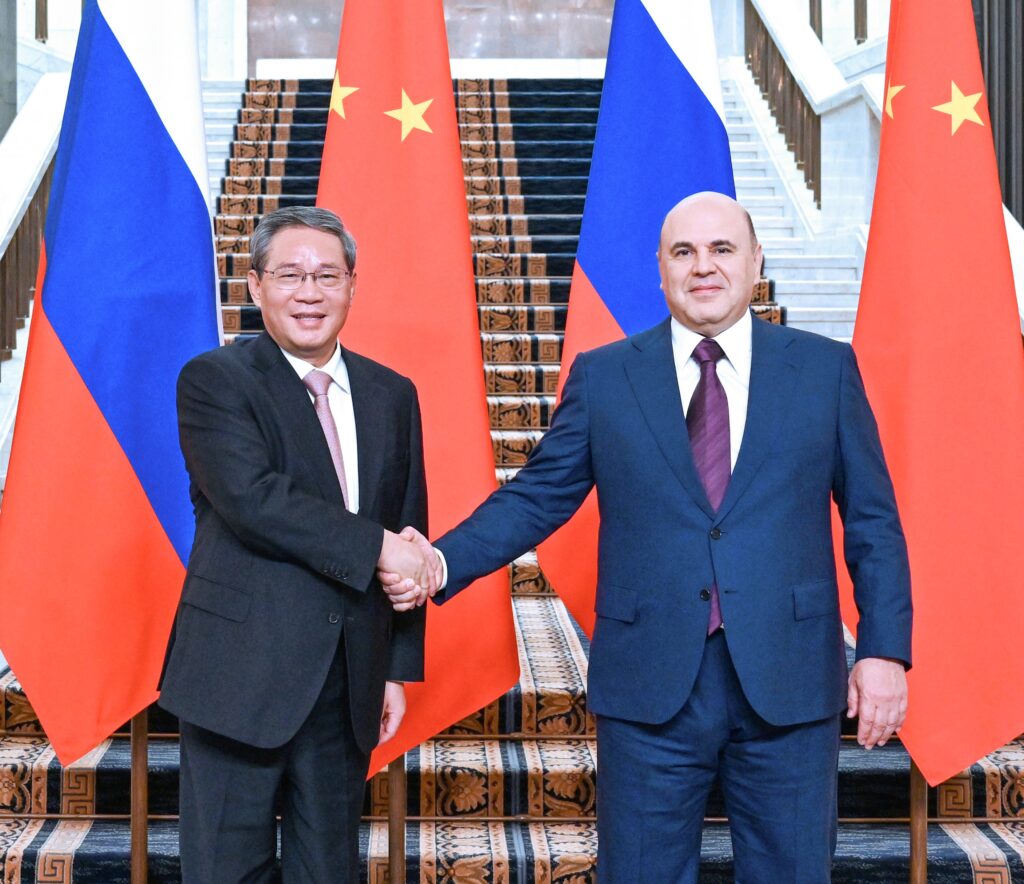
Opportunities, Challenges, and the Uncertain Future of Sino-Russian Cooperation in the Arctic
By Nong Hong
September 3, 2024
With Chinese Premier Li Qiang and Russian Prime Minister Mikhail Mishustin meeting on August 21 in Moscow and pledging deeper economic partnerships, it appears that China and Russia are making strides in their long-discussed cooperation in the Arctic. However, while the political will for collaboration in the Arctic is evident, this partnership presents both opportunities and challenges, making it difficult to be fully optimistic about its long-term success…
A “Sputnik Moment” in China’s AI Sector is Not in the Interests of the United States
By Ao Gu
September 9, 2024
The United States is at a critical juncture in its competition with China’s rapidly advancing AI sector. As China’s capabilities grow, the U.S. must decide whether to pursue manageable development through cooperation or to enforce stricter controls, potentially provoking an unprecedented “Sputnik Moment” in China’s artificial intelligence development. Over the past three years, the Biden administration has tried to balance fostering dialogue with China on AI cooperation and imposing export controls on AI chips and technology. With a new administration entering the White House in 2025, a critical decision looms: Should the United States continue Biden’s AI policy toward China and further intensify export controls? Or should Washington choose to have a different AI policy, promoting cooperation to keep China’s AI development on the radar? These decisions have far-reaching implications for global stability and technological leadership…
On Saturday, August 31, 2024, Senior Fellow Sourabh Gupta was interviewed by CGTN’s The World Insight with Tian Wei on the takeaways from US National Security Advisor Jake Sullivan’s visit to China.

The Institute for China-America Studies is an independent nonprofit, nonpartisan research organization dedicated to strengthening the understanding of U.S.-China relations through expert analysis and practical policy solutions.
1919 M St. NW Suite 310,
Washington, DC 20036
icas@chinaus-icas.org
(202) 968-0595
© 2025 INSTITUTE FOR CHINA-AMERICA STUDIES. ALL RIGHTS RESERVED.